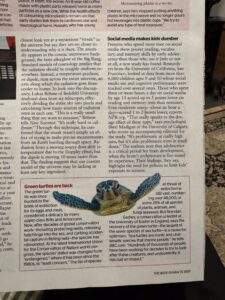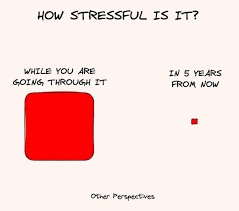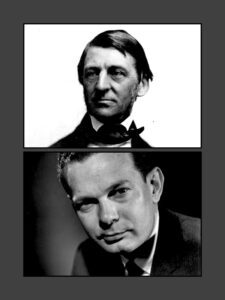Matthew Dicks's Blog, page 3
November 10, 2025
Big sandwiches make sense
A typical turkey sandwich in the 1980s contained 320 calories.
Today it can contain up to 820 calories.
As a result, an analysis of federal nutritional survey data found that sandwiches alone account for approximately one-fifth of daily sodium intake, 19 percent of total saturated fat calories, and 7 percent of daily added sugars.
The implication is that we are eating too many sandwich-based foods today.
I disagree. I think a sandwich is an excellent food item. The perfect vehicle for transferring calories from the world into your stomach. The sandwich is handheld, portable, and simple to eat. It can contain bread, meat, fish, vegetables, fruits, and condiments, allowing you to eat a host of items from a variety of food groups in a single bite.
It’s also a highly efficient food source.
Alone at lunchtime?
Hiking the Adirondack Trail?
Driving from one client to the next?
Running from a wild boar
Take your sandwich on the go.
No need to sit with a fork and knife and eat alone. When you have a sandwich, you can move about. Get things done. See the world
And sandwiches often leave little behind in terms of cleanup. A paper plate or no plate at all is perfectly fine for a sandwich. Perhaps a cutting board and a knife are all you need to assemble the sandwich.
That’s it. A couple of minutes later, you’re ready to go with your choice of sandwich that day:
Ham and cheese
BLT
Peanut butter and jelly
Tuna fish and peanut butter (my invention)
Grilled cheese and tomato
Turkey and cranberry jam
Bologna and salami on white
All of those awful tuna and chicken salad sandwiches with their disgusting mayonnaise
The choices are endless.
And if you agree to stretch your definition of a sandwich to include anything encased in bread and handheld — which you should — then foods like burgers, hot dogs, meatball subs, and bagels make the category of sandwich even more appealing.
Yes, the sandwich has grown in size and calories over the years, but only because it is an extraordinary piece of food architecture. A portable package of caloric goodness with the flexibility to eat something different every time you make one.
Sometimes bigger is better.

November 9, 2025
Pebbling
‘Pebbling’ is the new term for when people share memes and GIFs with friends and family.
The term “pebbling” originates with the gentoo penguin. They are known to pick up pebbles in their beak and carry them to their partners or potential partners as a gift.
They do this to help build their nest, but it’s also a gift that acknowledges the relationship between them.
Apparently, pebbling is a big thing in dating. Sharing of memes and gifs as a form of love language. Spotting something and sharing is a form of connection. It’s the acknowledgment that you were thinking of someone and knew what they might like.
I have never sent a meme or a GIF to anyone in my life, and I probably never will. I don’t care about them and have never been enamoured with them.
However, I often send links to friends and family. I read something online and think, “I know someone who would love to read this.”
Then I send. Almost always via text message.
And yes, it’s a signal that I’m thinking of the person, but more importantly, it’s an indication that I know the person.
Unlike that friend or family member who forwards you emails and sends you an endless series of links and memes, I am discriminating about how and when I send something to a friend. I’m not a link spammer. I don’t inundate my friends and family with every story I find on the internet that I find entertaining or enlightening.
I only send it if I approve of it and know someone who would specifically enjoy it as well.
I also love it when someone does the same for me.
My friend, Kathy, sent me a Washington Post story last week about the man who was found not guilty of assault for throwing a sandwich at a federal agent.
That same week, she sent me a photo of an Egg McMuffin with the message:
“Thinking of you as I eat an egg McMuffin at the airport.”

I loved both.
My friend, Chris, sent me a photo of an article in a newspaper about how social media is making children dumb.

I’ll be writing about it soon.
My friend, Aaron, sent me a NY Times piece about small talk that I finally got around to reading this week. It was excellent. I’ve already shared it with others. I may be using it in a book I’m writing on loneliness.
A client sent me an article about me that I had not seen. Another sent me a piece analyzing the play of New England Patriots quarterback Drake Maye. Another sent me a piece on storytelling in the nonprofit world.
I received all of this just this week.
Each time I received one of these links, stories, or images, I was happy.
Someone was thinking about me.
How lovely.
Pebbling.
I like this.
An easy way to let people know that you’re thinking about them and know their heart and mind.
In many ways, this blog is a form of pebbling. I have an idea. I find a story to write about and discuss. I experience a moment in the world. I engage in an interesting conversation. I get into an argument with a stranger. I find myself with a thought to share. I encounter something amusing or tragic or hilarious.
Then I write it here, thus sharing it with tens of thousands of readers. Far less targeted, but still a form of sharing.
Pebbling.
Perhaps I’ll start trying to do this more often.
Or maybe I’m already doing it often enough.
Maybe I’m about to foul up pebbling in a big way.

November 8, 2025
How stressful is it?
I think the idea conveyed by these two images is ridiculous and not helpful.
FIVE YEARS?
If something is going to be hugely stressful for five years, you have a right to be upset, outraged, and even despondent.
This, however, is almost never true.
Yes, there are times when a stressful situation can persist for a long time, but most stress that people feel is alleviated within hours, days, weeks, or perhaps even months.
People typically feel stress over moments that are gone almost immediately:
A contentious meeting at work
A fender bender on your commute
A clogged sink
Missing your flight
Thanksgiving with your monstrous aunt and uncle
A new job search
Your daughter’s failing science grade
An unexpected bill
A flat tire
Dropping your phone in a puddle
Your toddler’s temper tantrum
I once told a friend who was dealing with something exceedingly stressful and incredibly difficult that, in 18 months, life would be so much better. “Just eighteen months,” I said. “Given everything in front of you, that’s almost nothing.”
Eighteen months later, she came into my classroom and said, “Eighteen months later. You were right. Look at me now.”
Eighteen months is a reasonable time frame. You can look ahead eighteen months and see light at the end of the tunnel.
Five years is horrendous. Five years is six percent of an average human lifespan. Five years make no one feel good.
This isn’t to say that we can’t survive five years of stress or that five years is a blessedly finite period of time, but given how so many stressors in life last far less than five years, and given that five years is half a decade, I don’t find this particular graphic inspiring at all.
My suggestion:
Cross out “In five years from now” and replace it with:
“Six hours, or maybe 13 days. Possibly nine weeks, or maybe even 18 months, but probably not forever.”
Not quite as pithy as the current graphic, but a lot more honest and inspiring, I think.

November 7, 2025
Not as original as I thought
If you search for quotes by Matthew Dicks on the internet, the one that comes up most often is from my novel “Memoirs of an Imaginary Friend.” It reads:
“You have to be the bravest person in the world to go out every day, being yourself when no one likes who you are.”
― Matthew Dicks
It’s a good one because it represents a running theme in my fiction:
We are told as children to aschew peer pressure. Blaze your own trail. Be yourself.
But when the person you become doesn’t conform to societal expectations, you are often punished for being different.
I write about people brave enough to be different in the face of oppressive conformity.
But it turns out others have spoken about this idea before me. Specifically, these two quotes are very similar.
“To be yourself in a world that is constantly trying to make you something else is the greatest accomplishment.” ― Ralph Waldo Emerson
“A successful man is one who can lay a firm foundation with the bricks others have thrown at him.” — David Brinkley
I may not be original, but I keep very good company.

November 6, 2025
“A freaking laser”
When you wonder why we don’t have flying cars yet, fear not.
We can’t soar through the sky on our commute to work yet, but the future is here.
Case in point:
Commercial laser weeders are being used in agriculture on the west coast of the United States.
These are large machines that pass over crops, take photos, identify weeds with onboard computers, and then KILL THEM WITH A LASER.
The systems have been calibrated for west coast weeds, soils, and crops, but a new study tested their efficacy on the east coast for peas, beets, and spinach, yielding positive results.
The lasers are capable of reducing weed cover by 45 percent and density by up to 66 percent, resulting in 97 percent less weed biomass by the end of the season compared to untreated controls.
Even better, crop yields increased by up to 30 percent when laser weeding replaced herbicide use.
Our cars can’t fly yet, but robotic machines are using laser beams to kill weeds, and as a result, we are growing even more food.
Amazing! The future is here!
Just try not to think about how AI might use these devices on human beings when it attempts to take over the world.

November 5, 2025
Philadelphia’s silliness
I’m a huge Celtics fan, so I realize that some of this opinion might be tinged with bias, but I think the Philadelphia 76ers uniforms couldn’t be stupider.
They have three variations of the uniform, but all are dumb.
Their away uniform features the word “Phila” on the front because “Philadelphia” could presumably not fit.
But Phila? No one refers to that city as Phila. It’s not even a reasonable abbreviation of the word.
The Atlanta Falcons have “ATL” on their football jerseys, which I also find silly, but at least “ATL” is a possible abbreviation of the city’s name. It’s just three capital letters across the chest — small, clear, and bold.
Phila is just 41% of the actual word. It almost looks as if the word might wrap aound the back.
Just saying the word “Phila” out loud makes me feel dumb.
The home uniform is even more ridiculous. The team’s name is the 76ers, which is a dumb name. It was chosen by fan vote in 1963 and was meant to honor the 1776 birth of our nation, which took place in Philadelphia, but naming your team after 50% of a year — or any year — is also dumb.
Even worse, their home uniform identifies them as the Sixers, which is just 46% of their name, but it’s also how many people refer to the team since “76ers” — their actual name — sounds dumb.
But the team could easily fit their proper name — 76ers — on the jersey, but they know that their team name actually looks ridiculous, so they instead switch from numbers to letters and only include the back half of the name.
In summary:
The front half of the word “Philadelphia” when the team is away.
The back half of the word “Seventy-Sixers” when the team is playing at home.
This is a dumb name that causes dumb problems, which are being solved in a dumb way.
Then again, I’m a Celtics fan, so maybe I’m seeing all of this through green-tinted glasses.
But I don’t think well.

November 4, 2025
Fire!
It’s 3:55 AM when I hear a yowl from downstairs.
The cats are fighting. More accurately, Pluto is trying to attack Tobi. We’ve been dealing with this, on and off, for almost five months. The neighbor’s cat began appearing on our deck in May, and something happened to our cats that I had never heard of before:
Redirected aggression
It happens when a cat becomes aroused, frightened, or agitated by something it can’t directly reach — such as another cat outside the window, a barking dog, or even a loud noise — and then redirects that aggression toward a nearby cat, person, or object.
In this case, Pluto redirects his aggression at Tobi, and it’s awful. It’s violent and nonsensical. Two cats that love each other become instant enemies for hours or days.
It’s been awful for all of us, cats included.
It’s also been much better for more than a month, but at 3:55 AM, I hear them screaming at each other, so I race downstairs to separate them. As I enter the kitchen, I see them run across the counter and stove and sink.
I end up in the back room with the cats. I’m holding Tobi, trying to show Pluto that it’s only his brother. Trying to flip his brain back to normal. Trying to get him to see reality.
Then I smell something funny.
“What is that?” I say aloud.
Then I see. Through a window between the back room and the kitchen, I see it.
Flames.
A fire on the stovetop. Huge flames. At least two feet high. A second later, the smoke detector goes off.
I drop Tobi and race to the kitchen. Two large plastic cereal containers are engulfed in flames. The fire is big, high, and shockingly intense. I take a towel off the oven handle and attempt to smother the flames. The fire goes from nearly three feet high to about a foot as I beat back the flame, but then the towel catches fire.
We have a fire blanket under the sink for this very reason, and a fire extinguisher is located in the basement stairs, approximately ten feet away.
I grab the fire blanket as the flames begin to climb higher and higher again. The smoke is now so thick that I can barely see the stove. I begin coughing. I look at the fire blanket. It’s in a sealed pouch that I have never opened before. I don’t know how to open it. It might take a few seconds to figure it out.
I look to the fire. It’s getting higher again.
Then I remember:
About a month ago, I was consulting at Etsy when I met a guy named Steve. I was teaching storytelling to a team of about 50 people, including Steve, and he shared a story with me about a time his stovetop caught fire. He grabbed his fire extinguisher, pointed it at the fire, and pulled the trigger.
Nothing happened. It failed to discharge.
He tried again. Still nothing.
It turns out that if you don’t shake your extinguisher every three months or so, the contents can become inert and useless.
Steve tried for about 30 seconds to get the extinguisher to work, and that was all the time it took for the cabinets to catch fire.
He lost his home that night. Burned to the ground.
I thought of Steve as I stared at the fire blanket. His story flashed through my mind. I didn’t have time to figure out this pouch and get the fire blanket out. The flames were climbing higher and higher.
Instead, I grabbed a small stack of paper bags from the grocery store that were neatly stacked under the sink. I took those bags and began pounding on the fire, smothering it again and again.
In about ten seconds, it was out.
Paper bags. I used paper bags to put out the fire.
How did I know this would work?
The Boy Scouts. Smothering a fire is always the priority. Even flammable objects, such as paper bags, can do the job.
How did the fire start?
As the cats ran across the stovetop, one of them hit the dial and turned a burner to high. The firefighters later told me that cats have started many fires this way before.
I suffered from smoke inhalation, partially because I stayed in the house too long, opening windows and checking on the cats, who stopped fighting as soon as the fire broke out and sat on the island to watch me battle the blaze.
Charlie later said the fire reset and rebooted them. I think he’s right.
As I was opening windows and inspecting damage, Elysha was rightfully telling me to get outside until the fire department arrived. Thankfully, our alarm company contacted the fire department, and we could already hear the sirens.
Eventually, I listened to Elysha, but not before I managed to breathe in enough smoke to spend the day coughing.
My throat is still sore today.
I burned my hands, too. Nothing serious.
My eyes are still watering a little.
But otherwise I was fine. So, too, are Elysha and the kids, who evacuated. And the house, thankfully, is perfectly fine. In less than an hour, we had cleaned up the mess, and other than the smell of smoke, you never would’ve known anything had happened.
When the firefighter came into the house, he saw the scene. The fire blanket was on the ground beside the stove, unopened. Charred paper bags on the stove and floor. The remnants of a burned towel. Plastic containers burned down to their bases.
“So you had a fire blamet but didn’t use it?” he said.
“I was worried the fire was getting too high, and getting the blanket out would’ve taken too much time.”
He asked me how high the fire had reached, so I showed him, then looked at the blanket again. “So you used paper bags instead?”
“Yup.”
He looked back at the stove again.
“You probably had less than 30 seconds before the cabinets or ceiling caught fire. Then you could’ve lost the house.”
“Really?”
“Absolutely,” the firefighter said. “It happens fast. You probably made the right call.”
Not me. I didn’t make the right call.
It was Steve from Etsy and the Boy Scouts.
The power of a story — unforgettable and specific — and fire safety training, drilled into me relentlessly for years by Scout leaders when I was a kid, saved the house.
I later contacted Steve to express my gratitude.
Quite the morning.
Two fire engines and a police car lit up our neighborhood like a Christmas tree, but happily, they only needed to ensure that the fire was out and everyone was okay.
“Most people would’ve tried to use water, since the sink is so close to the stove,” the firefighter told me.
“That never even occurred to me,” I told him. I told him about my Boy Scout training.
“The Boy Scouts trained you well,” he said.
Elysha often says that she thinks the Boy Scouts taught me more than public school.
“And a bit of advice,” the firefighter said. “Don’t put flammable things on your stove top. Ever.”
I agreed.
Some advice for all:
Shake your fire extinguishers every three months.Practice extracting your fire blankets from the pouch before you need them.If you don’t have fire blankets and fire extinguishers, make that investment now.When a fire erupts, speed is of the essence.Smothering a fire, whenever possible, is the fastest way to extinguish it.Remaining calm in an emergency is critical to your survival.Listen to your wife when she tells you to get out of the house.Don’t place flammable objects on the stovetop.Stories are powerful tools for conveying critical information.Excellent training early in life might save you decades later.Join Scouting.Also, refrain from blaming the cats for trying to burn down the house. They know not what they do.

October 18, 2025
“All Well that Ends Well” – depending on the target of your honesty
“I begin to be aweary of thee,
and I tell thee so before
because I would not fall out with thee”
This is a line from Shakespeare’s “All’s Well that Ends Well,” and I have always loved it.
It’s essentially a call to be honest with your friends and family, because if you’re not, you risk irreparably damaging a relationship.
Don’t allow unspoken words to take up space between you and the people you love lest you risk losing them.
Good advice. Shakespeare was wise.
But then the question arises:
What about the words you want and need to say to someone, even if you might “fall out with thee.”
The family member who has wronged your loved ones for their own profit.
The colleague who has spoken vile words behind your back.
The friend who has let you down again and again.
Telling thee might break those bonds forever.
Family gatherings become more difficult.
Your workday becomes more fraught.
Your friendship might teeter in the balance.
In these cases, what does Shakespeare advise?
Blow the whole damn thing up because it’s what you feel in your heart and mind, or swallow your words, at least for now, to make the days a gentler, easier, and more copacetic place to be?
I’ve read every Shakespearean play, and I’ve read many of them many times.
He’s got nothing to say about this as far as I can tell.

October 17, 2025
Grossest things I’ve ever seen
A student asked another about the grossest thing she’d ever seen.
Her response:
“What a dumb question.”
True, given we were solving math problems, but I liked the question a lot, so here is my list:
I saw the backfire from the bus blow a hole the size of a grapefruit in the leg of a 14-year-old boy, who had been leaning against the exhaust pipe at the moment of the backfire.
I saw my own femur and kneecap exposed to the world as I pried my leg from the air conditioning unit of my Datsun B-210 following a car accident in 1988.
Those Lamisil commercials are horrifying.
I saw a man bleed to death in about three minutes after being stabbed on Main Street in Brockton, Massachusetts, in 1993.
I attended a party in 1991 at North Adams College, where the punch was spiked with vodka and road kill. The frat boys had shoveled up a dead animal off the side of the road a couple of days before the party and had frozen it into a block of ice that they had dyed red. They then froze the block of red ice containing the road kill into a larger block of ice and dropped it onto a barrel full of Hawaiian punch and vodka. The goal was to drink the barrel of spiked punch before the ice melted down to the red ice of the road kill.
We succeeded.
But it was disgusting.
But the winner for me was something I saw at the Showcase Cinemas in Berlin, Connecticut, about two decades ago. Upon entering the restroom, I saw an enormous man in tight leather pants and a mesh half-shirt using a urinal while eating a hot dog.
That was the worst.

October 16, 2025
Defaulting to mom
In American society, it is often assumed that the mother is the default parent and the first contact for schools and other caregivers over children’s fathers.
It probably has something to do with patriarchy. For a long time, men were the traditional breadwinners, and women remained at home to take care of the children and the household. Therefore, they were the logical choice for schools to contact when a need arose.
This is no longer the case, of course, but the legacy remains.
Other factors probably contribute to this that I have yet to even consider.
But it’s true:
In a heterosexual parenting relationship, schools perceive mothers as the default parent over fathers.
In one study, researchers posed as fictitious parents and emailed 80,000 school principals, saying that they were searching for a school for their kid. The principals were 40 percent more likely to call the mother than the father listed in the experiment.
Even in experimental cases where the “father” sent the email and specifically indicated he was more available than the wife, principals still called the mother 12 percent of the time.
This, of course, is crazy.
Right?
Here’s my only question:
Do most women and men prefer this arrangement? Do most mothers prefer to be the default parent, and are most fathers happy to defer this role to their wives?
I don’t think so, but again, I might be wrong.
Given that email and text messages can be sent to more than one person, maybe we should just eliminate the notion of a default parent altogether.
After all, who wants to speak on the phone anyway?




